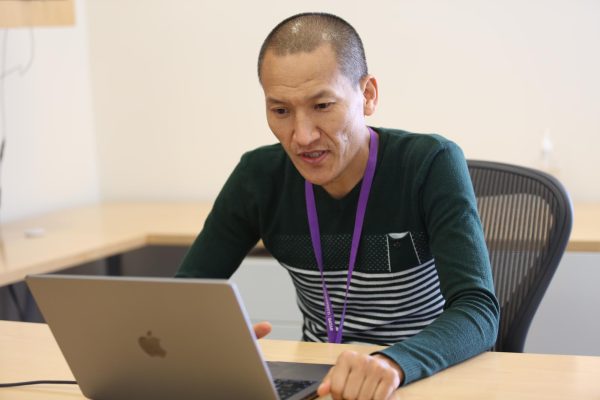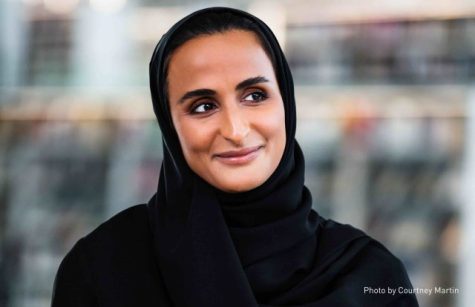Speaking of Identity: The Effects of Language on Cultural Identity
According to Ethnologue, there are approximately 7,000 languages spoken all around the world. But most of us only know one or two that we grew up speaking at home and at school. The beauty of multilingualism lies in the ability to express ourselves in multiple ways. Even though language is a tool of communication and understanding, it is also used to convey culture, identity and family ties. For multilinguals, speaking a certain language that is not within their cultural sphere can open a path for engagement with the differing cultural aspects that come with that language. But sometimes multilinguals are faced with issues when it comes to balancing language and their cultural backgrounds. This is especially true if one language is more deeply rooted in the social, cultural and religious platforms of a community. This is the case for many people living in Qatar in regards to Arabic and English. I witnessed this particular problem during a fair where I overheard a conversation taking place between two students concerning how their educational opportunities might be hindered because of their inability to speak English. To understand the dilemma, four freshmen from Northwestern University in Qatar explore what it means to be multilingual and its implications, drawing on their personal experiences.
Name: Majed Al Kuwari
Nationality: Qatari
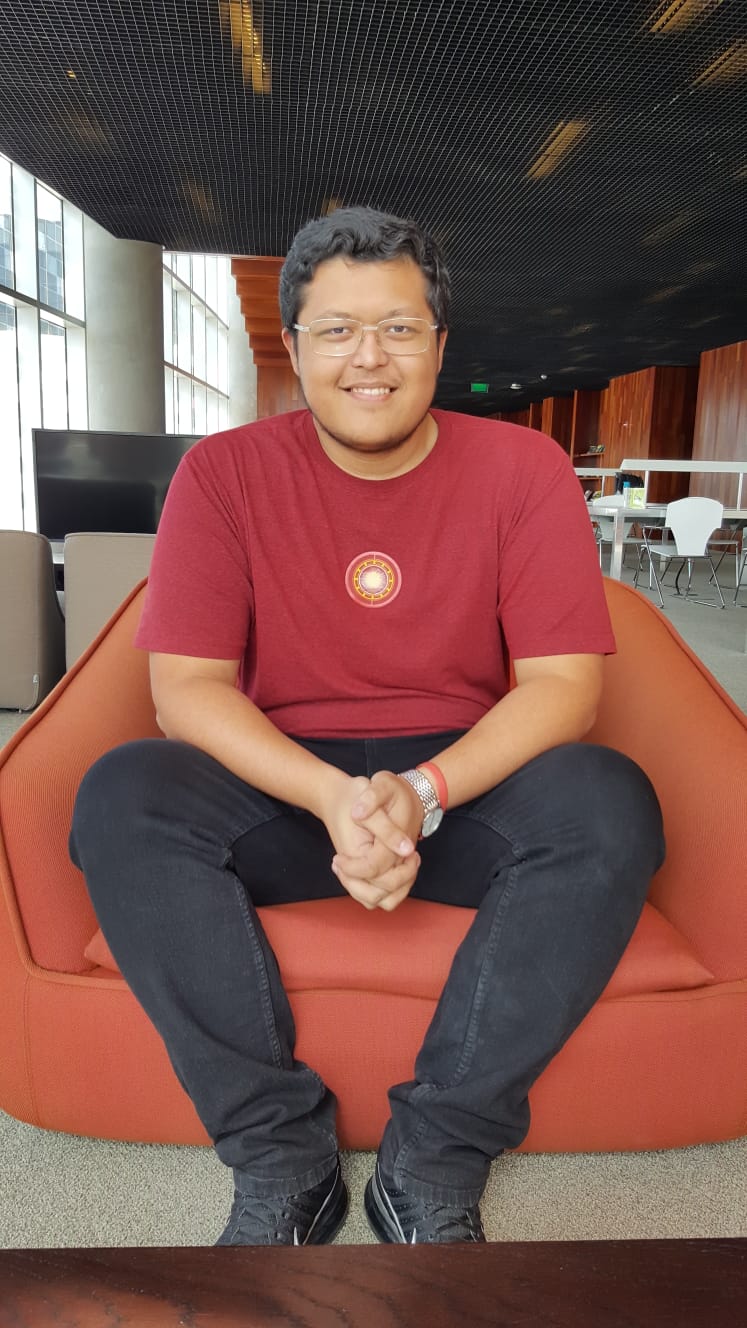
What is language to you?
I see language as a way to connect to one another in life; without it there would be only misunderstandings.
As someone who has to speak English on a daily basis, how do you find it affecting your Arab culture?
I find it affecting my Arab culture quite a bit because I am extremely Westernized. At least that’s how I see myself. I feel that I have a very different lifestyle than other Qataris. I feel pretty distant from Arab culture.
In what ways do you believe English has an influence on your identity?
It can create opportunities to engage in conversations but it also influences me negatively. In particularly in official situations such as sponsorships and establishing ownership where foreigners are subjected to a different system than Qataris. During those situations, they treat me like a foreigner. The majority of people that act this way are Qataris themselves and half of the time it is without respect, which really grinds my gears. They either tell me to leave because the service is “Qatari-only,” or they give me the expat versions of documents; all without even asking or checking where I am from. I always have to clarify that I’m Qatari. Then their attitude takes a 180 degree-turn.
Have you ever experienced an identity crisis because of people’s attitude towards you speaking English in a predominantly Arab society?
I don’t think I’ve experienced an identity crisis, but I’ve been alienated and bullied because of my inability to speak Arabic. It made me realize at such an early age that I was going to be experiencing this for a long while. I began to avoid talking to other Qataris at that time and befriended foreigners because of the experience. I feel that language is strongly tied to how people judge your general character.
Do you believe language determines your connection with your cultural heritage?
Yes, but not in every situation. Being able to speak the language of your country of origin allows you to connect with its culture, especially the heritage, but there are certain situations that individuals are connected to them because their family history has already been mixed with other cultures. I don’t believe that you particularly need the language in order to connect with your cultural heritage.
If you could only speak one language for the rest of your life what would that be?
English. I would choose to speak English since I have such a deep connection with it since birth. I was brought up with it, educated with it, and made a lot of fond memories with it. I rather stick with it as it is practically the only language I am fluent in.
Name: Noor Hadad
Nationality: Yemeni
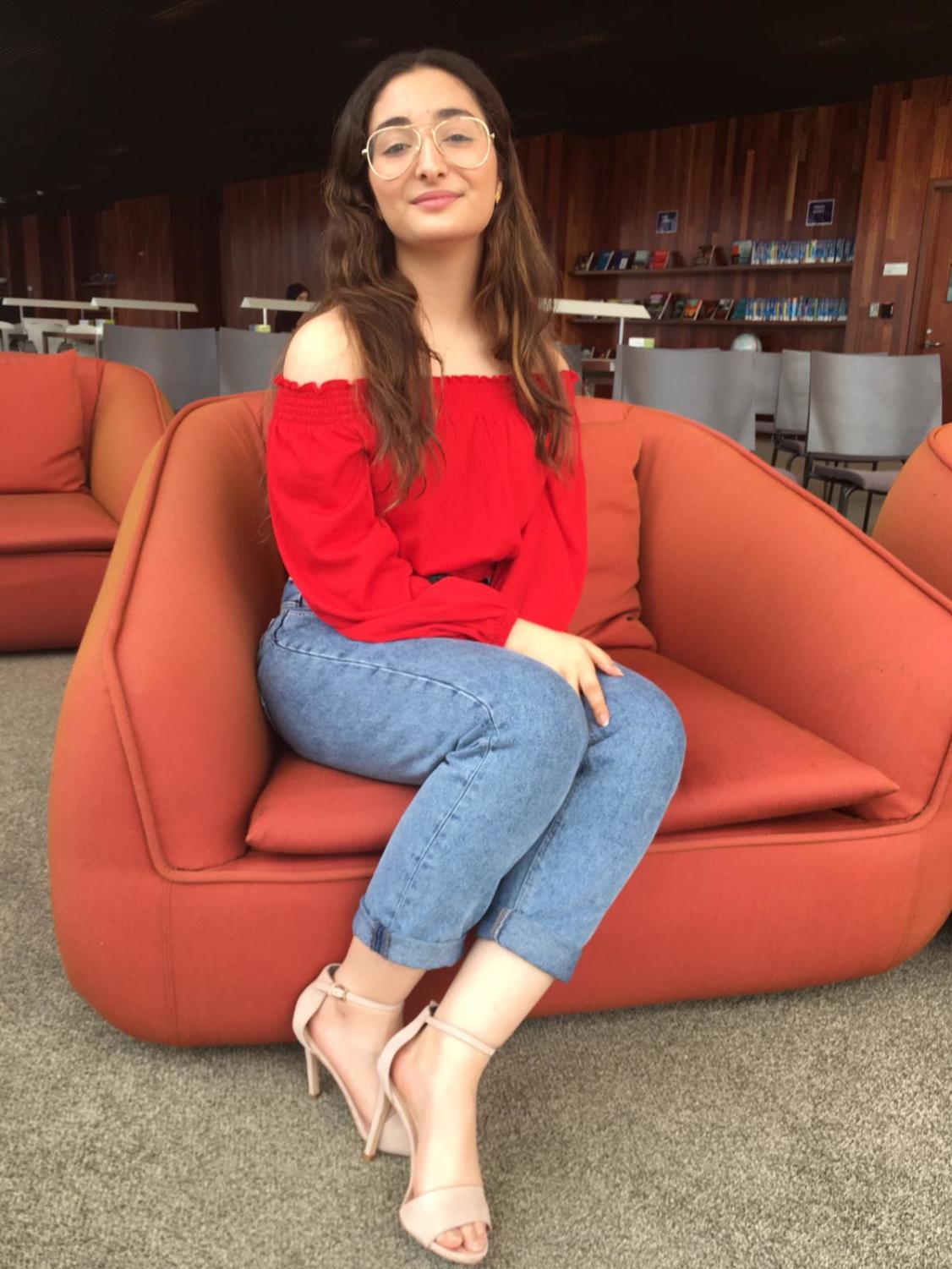
What is language to you?
The fact that I’m able to speak a language that has been around for such a long time and that the entire Arab culture, and even Islam as a religion, is based on is something that makes me feel like I’m part of a community that’s so much bigger
As someone who has to speak English on a daily basis, how do you find it affecting your Arab culture?
I think it has always been at the back of my mind how I’m worried that I’m straying away from my culture. Sometimes I even feel guilty about not being as fluent in Arabic. Having interactions with Arab people is also a bit of a challenge because I’ve found that its more difficult for me to keep up a conversation in Arabic than in English.
In what ways do you believe English has an influence on your identity?
I think English has just as much effect on my identity as Arabic does. I call English my “official” mother tongue because of how much I use it on a day-to-day basis. I think it shaped me as a person and my personality, my likes and dislikes, and my ambitions just as much as Arabic is tethering me to my roots and culture and gives me a sense of weight and regality.
Have you ever experienced an identity crisis because of people’s attitude towards you speaking English in a predominantly Arab society?
Definitely. I’ve always had more difficulty in approaching and maintaining an engaging conversation in Arabic or with an Arab, sadly. It was always more difficult to make Arab friends, and I think the reason is mainly because all of my interests and the things I interact with the most are English based, and that is very different from what they are accustomed to. So we don’t really click.
Do you believe language determines your connection with your cultural heritage?
I do believe that language is a huge part of cultural heritage. I believe studies were even made on how cultures or civilizations die when their language is forgotten. I think the Arabic language holds so much history in it and so yes, it is very integral to Arab culture and society. The way people interact and their values, mannerisms, etc., all can be tied back to the language and what has been communicated by it.
If you could only speak one language for the rest of your life what would that be?
This is a very difficult question for me. But if I had to think in a practical manner, I would say English. Simply because it is spoken around the world and it’s the main form of communication. It would make my life easier.
Name: Khalid Al Thani
Nationality: Qatari
What is language to you?
Language is what allows us to share our experiences, express our feeling and communicate in general.
As someone who has to speak English on a daily basis, how do you find it affecting your Arab culture?
The nature of civilization is always developing, and my Arabic background today is different than my predecessors. Knowing more languages can enhance our culture especially when it defines who we are.
In what ways do you believe English has an influence on your identity?
It has helped me become a more multicultural person. Speaking English has added another dimension to my character as it has allowed me to be exposed to different cultures and learn from them. However, that has not overshadowed my Arabic identity.
Have you ever experienced an identity crisis because of people’s attitude towards you speaking English in a predominantly Arab society?
No, because I would constantly speak Arabic out of school and also with my friends in school. There are certain prejudices that exist with older generations who may disapprove of predominately speaking in English. I think it is important for people to continue to learn and speak Arabic as it is a part of our identity. However, that does not mean that we are limited to that.
Do you believe language determines your connection with your cultural heritage?
Yes, I feel that that Arabic language is an important part of connecting with my culture. As I mentioned before, it is not just a language but is tied to so many more aspects of our culture.
If you could only speak one language for the rest of your life what would that be?
Arabic, because I feel it is an important part of not only my culture but also my personality. I would be able to communicate more easily with people around me, especially those older than me. I also find that I am able to express myself more easily in Arabic, since it was what I grew up speaking at home and with my family.
Name: Farah Gomaa
Nationality: Egyptian
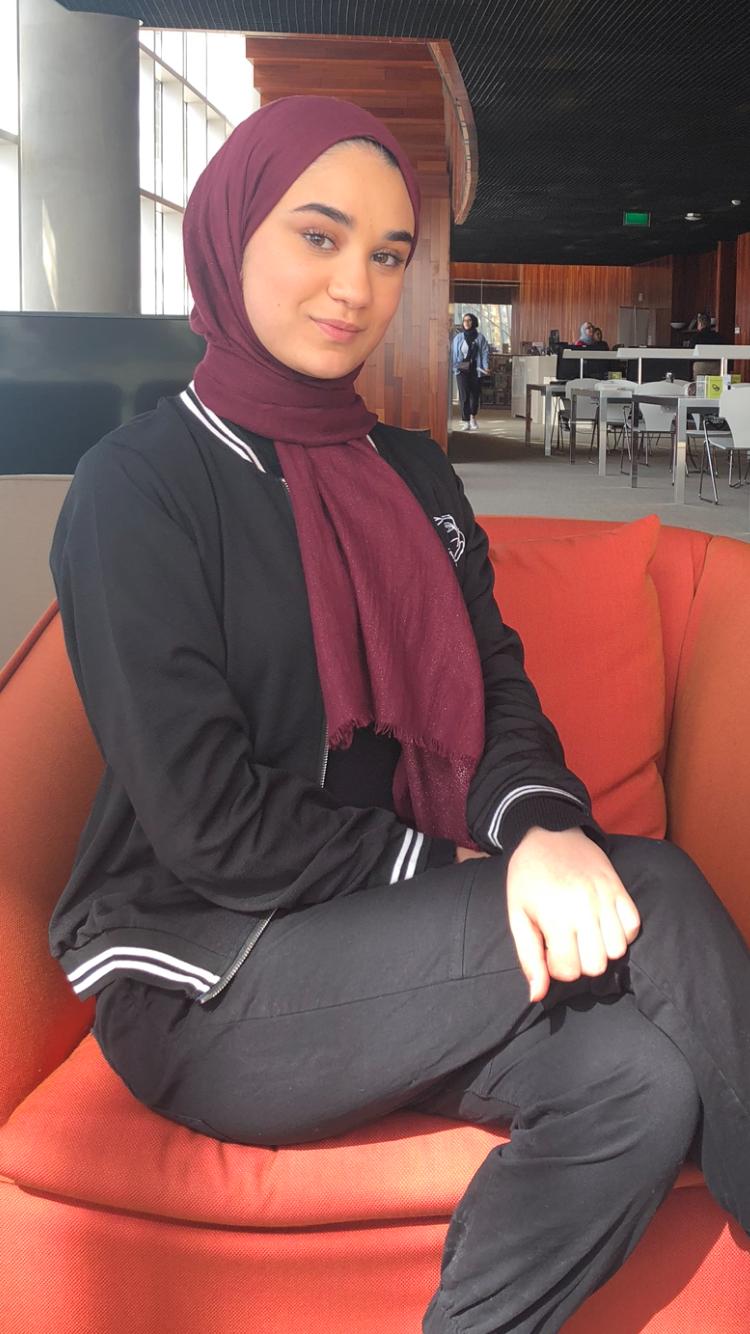
What is language to you?
Language for me is a way of communication and how I present myself. It explains a lot about my ethnicity and my nationality.
As someone who has to speak English on a daily basis, how do you find it affecting your Arab culture?
It doesn’t affect my Arabic culture honestly because I go home and I speak Arabic. I have Arab friends, I’m in an Arab country, so I see English as a way to reach a wider range of people, not a limitation.
In what ways do you believe English has an influence on your identity?
English makes me look like a more educated person and connect me with a wide range of people, but I think sometimes when I go back to my home country where barely anyone speaks proper English, it can create conflicts in communications.
Have you ever experienced an identity crisis because of people’s attitude towards you speaking English in a predominantly Arab society?
People think that we are trying to show off and we are not being ourselves, which is completely untrue because it is how we are educated. It is not like I’m trying to be Britney Spears.
If you could only speak one language for the rest of your life, what would that be?
English because it is the society I’m living in right now. English is the key to everything because everything requires English nowadays.
Cultural identity and language are not mutually exclusive but they do stem from a sense of community and relationships. These university students’ reflections show the diverse backgrounds people come from and how language manifests itself in their respective identities. The power language has over our interactions is immeasurable and clearly demonstrated in our day-to-day interactions. Language shapes our relationships and our values, forming our identity as we grow up speaking it. It is a beautiful vehicle of seeing the world.




